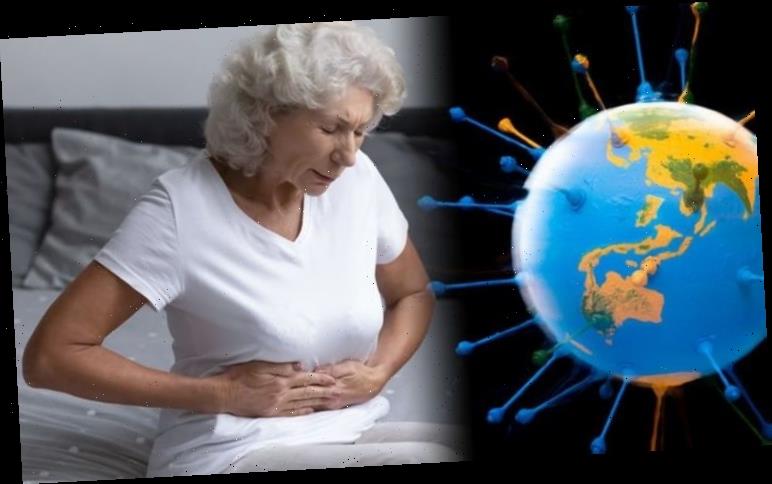Coronavirus is still contagious. Don’t let the relaxation of lockdown measures fool you. You may catch the disease. Do you have it?
The Centers for Disease Control and Prevention (CDC) have a more exhausted list of symptoms than the NHS.
For instance, the NHS lists three possible main symptoms of coronavirus.
These are: a high temperature, a new, continuous cough and a loss or change to your sense of smell or taste.
READ MORE
-
Coronavirus symptoms: The unpleasant sensation that may be a sign
As the NHS states, the above are the “main” symptoms, and by no means not all of them.
The CDC noted that symptoms may appear two to 14 days “after exposure to the virus”.
One warning sign you may have picked up the bug is to suffer from diarrhoea.
The NHS define diarrhoea as “passing looser or more frequent stools than is normal for you”.
Viruses, such as coronavirus, norovirus and rotavirus, can lead to this distressing symptom.
What’s norovirus?
Norovirus is also known as the “winter vomiting bug”.
It causes sudden diarrhoea and vomiting, and typically begins two days after infection.
The unpleasant symptoms usually pass in two days, but the bug is contagious so it’s advisable to stay at home during that time.
The best way to prevent it spreading is to frequently wash your hands with soap and water.
Unlike the disease from coronavirus, COVID-19, the norovirus isn’t a new illness.
What’s rotavirus?
Now an oral vaccine is routinely given to babies to aid against this virus.
It’s a highly infectious stomach bug that causes diarrhoea, vomiting, tummy ache and fever.
READ MORE
-
How to boost your immune system: Five things you can do
The recovery may take as long as a week, and complications (such as dehydration) can occur, which may require hospital treatment.
Back to coronavirus, if it causes diarrhoea, do be aware of dehydration.
Signs of dehydration including drowsiness, passing urine infrequently, and feeling lightheaded or dizzy.
To combat this side effect it’s important to frequently sip water.
The CDC lists other symptoms of coronavirus to be aware of.
This includes fatigue, muscle or body aches and a headache.
Additionally, one may experience nausea and vomiting, as well as a sore throat.
It’s also not unheard of for people infected with coronavirus to experience chills.
Source: Read Full Article





